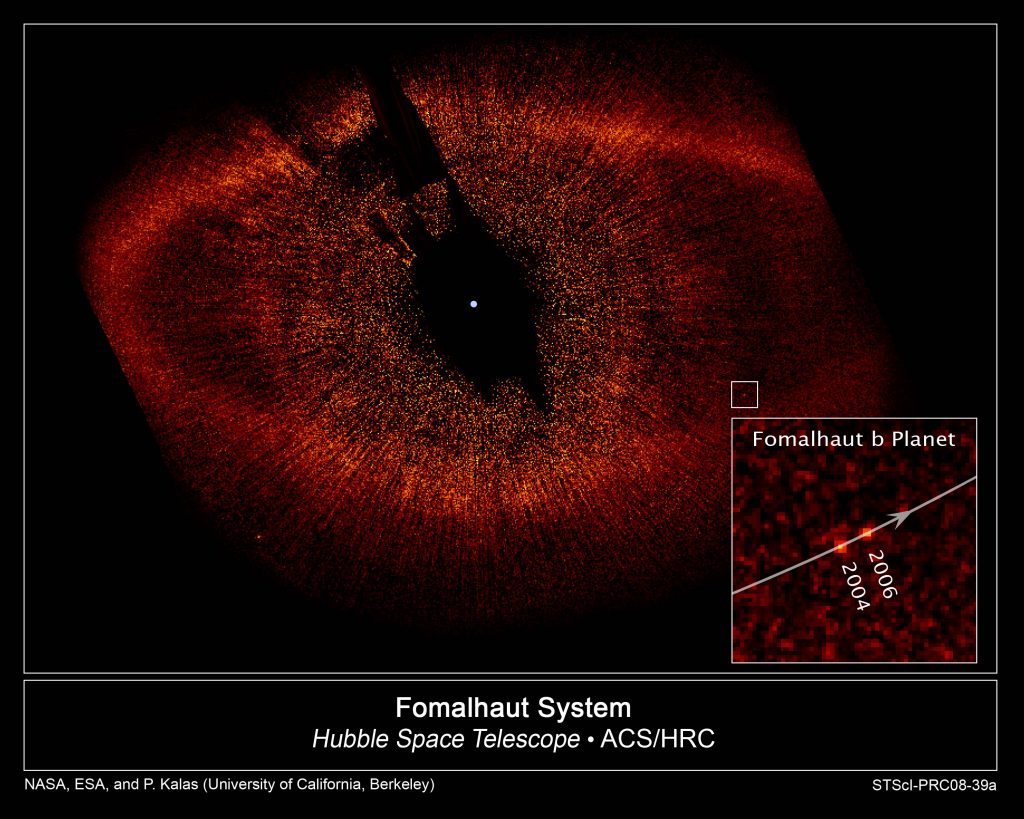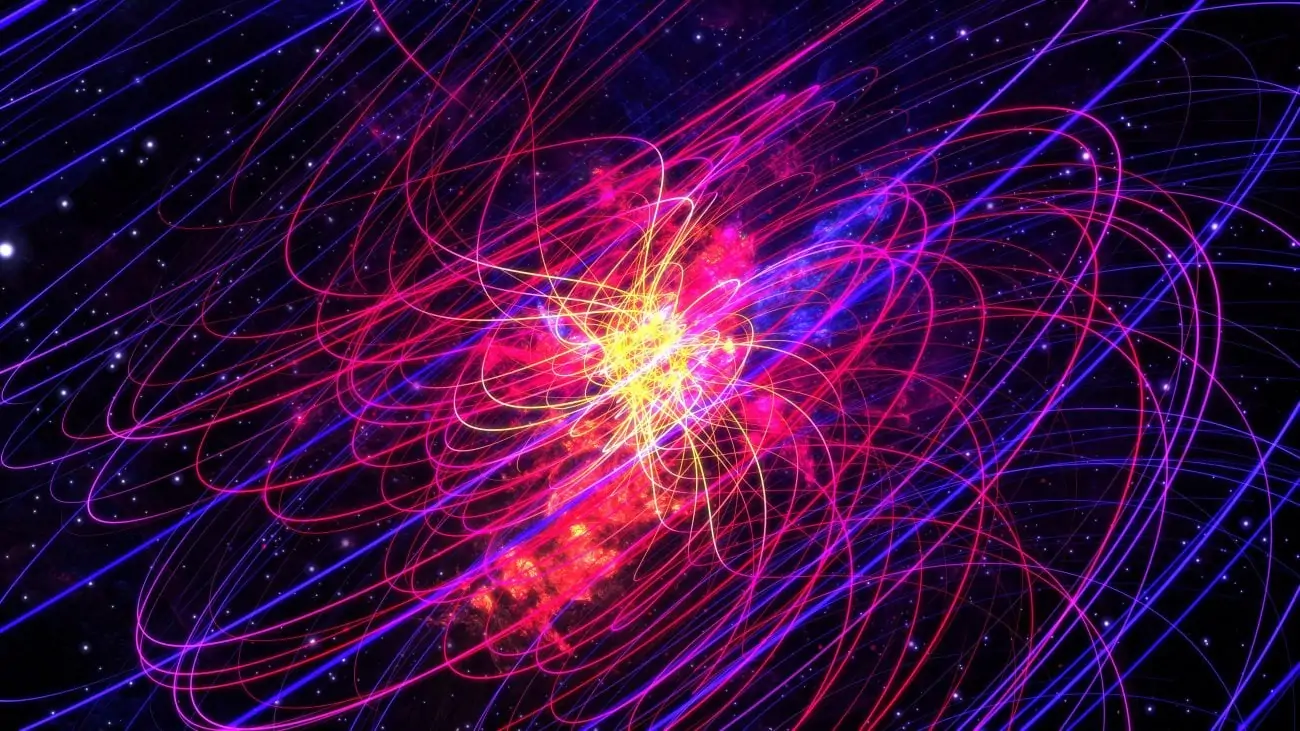The Search for Alien Life
Water found for first time on ‘potentially habitable’ planet. So declared the BBC on 12th September 2019. The news was momentous. A planet was found 650 million million miles from Earth called K2-18b. But this was no ordinary planet. It sits in the ‘habitable zone’ around its star, the zone often called the Goldilocks Zone, after the children’s fairytale where Goldilocks searches for conditions that are ‘just right.’ In cosmology, this is the region around a star where the temperature is not too hot and not too cold for life. Such planets outside of our own solar system are called exoplanets, and nearly 4000 are confirmed to date since the first discovery of two rocky planets orbiting a pulsar (called PSR B1 257 + 12) by Aleksander Wolszczan and Dale Frail in 1992. These planets, which orbit stars far from our Sun, are most commonly detected using two techniques called Transit photometry and Doppler spectroscopy. The former uses the idea that a distant star will dim as one of its planets (if it has any) passes between it and us during orbit. The latter uses a concept called the Doppler Effect; it registers the change in the spectrum of the star, like the colour of light coming from it. Planets ‘tug’ at stars as they orbit around them, resulting in a change of position and velocity of the star, and thus a change in the spectra detected.
It wasn’t until April of 2001 when the first exoplanet was to be found in the habitable zone around its star by Astronomers at Geneva University. Since then, developments in technology have opened up the doors to study exoplanet atmospheres. Along with temperature, the atmosphere will determine what sort of life it could harbour, if any. Without the right kind of atmosphere, life could never get going. This, along with studying the size of the exoplanets and the distances from their stars are all for one thing: to find extra-terrestrial life. Life beyond Earth.
In April 2014, another milestone was reached, in the discovery of an exoplanet called Kepler-186f – the first Earth-sized planet in the habitable zone. Discovered by the Kepler space telescope, this planet is just 10% larger than Earth and could hold liquid water. While there are still many unknowns when it comes to determining whether these planets harbour life, scientists understand well the ingredients that can lead to life, and the conditions those ingredients need to be in. Life needs liquid water, an energy source and certain elements in the right ratios (carbon, nitrogen, hydrogen and oxygen). In the multifarious theories as to how life began on Earth, these factors always come in to play.
Even if a planet has the right ingredients, whether they facilitate life depends on how these ingredients are mixed. Again, things have to be just right. Regardless, the search for these crude factors is a first-step to finding Earth-like planets.
The scientists working in this field over recent decades have expressed their beliefs that alien life is out there, waiting to be found in one of these planets. Wolszczan himself, the man who discovered the first ‘Goldilocks zone’ planet, remarked, “Keep searching, keep searching, one day it’s probably going to happen.”

The Origins and Journey of Extra-Terrestrial Ideas
From SETI and the Wow! Signal, to the Drake equation, to Spielberg movies and supposed UFO sightings, contemporary society is extremely familiar with the idea of aliens. Was it always this way?
The idea of other worlds can be dated back to Greek Antiquity. Back then it was known as aperoi kosmoi (άπεροι κόσμοι) literally meaning infinite worlds. Such an idea was first posited by Leucippus and Democritus from the fifth century BCE. Their concept of many worlds stemmed from their philosophy of atomism, the idea that matter is made up of an infinite number of tiny particles in constant motion. With infinite atoms, the idea goes, it is almost inevitable that other worlds would have formed. This was championed by the Greek Epicurus, the 2nd Century BCE philosopher who championed atomism as a way to free the Greeks from the shackles of mythology. He wrote:
“Furthermore, we must believe that in all worlds there are living creatures and plants and other things we see in this world…” [i]
These concepts were then popularised among the Romans by Lucretius, a 1st century BCE poet who eulogised the philosophy in his poem De Rerum Natura — On the Nature of Things. He states,
“… our world has been made by nature through the spontaneous and casual collision and the multifarious, accidental, random and purposeless congregation and coalescence of atoms whose suddenly formed combinations could serve on each occasion as the starting point of substantial fabrics—— earth and sea and sky and the races of living creatures. On every ground, therefore, you must admit that there exists elsewhere other congeries of matter similar to this one which the ether clasps in ardent embrace.” [ii]
Though Lucretius had some success in his day, following the philosophy of atomism was certainly a minority position in antiquity. Indeed, most of society would not have even been aware of these ideas. The dominant views of Aristotle (384–322 BCE) and Plato (428–348 BCE) went against the plurality of worlds, with Plato even suggesting that if there were many worlds, creation would decay.
This takes us
to the Byzantine Empire. An Empire that would replace the Eastern Roman Empire
to mark the end of Ancient Rome and the beginning of the Middle Ages. With
Greek as its primary language and its culture being built upon Greco-Roman
origins, this Empire had its entire system built upon Christian theology, with
the works of St. Augustine of Hippo (354-430 CE) bearing considerable
influence. The North African theologian engaged critically with Greek thought
and left his indelible mark upon both Byzantine philosophy. Augustine, like
Plato and Aristotle, was similarly opposed to such notions put forward by the atomists
– suggesting that their flaw lies in the suggestion that God does not have the
power to destroy these tiny particles in constant motion, forming and deforming
as they are into other worlds. [iii] [iv]
The Greek philosophy that was a part of the social thought of the
time was predominantly Aristotelian and Platonic, not Epicurean. In fact, it is
well known that the works of Lucretius practically went missing from the
beginning of the Byzantine Empire until it was found again in a German
monastery in 1417. [v]Thus
with the rapid fading of Epicurean thought in the early 1st millennium,
the journey of the plurality of worlds
was stalled.
Thomas Aquinas, the most important Christian Theologian of the last millennium, followed Augustine in his condemnation of atomism and all its branches. It was not until the second half of the last millennium that the concept of many worlds began to be mentioned again in western thought. The idea was toyed with by various thinkers during this time, and filtered into the mainstream in the 19th Century, when linear markings on the surface of Mars were visualised. Rife speculation followed that Martian civilisation exist, and the idea was immortalised in H. G. Wells’ War of the Worlds (1897). With the subsequent emergence of science fiction as its own genre, alien ideas have found permanent residence in the modern mind.
Do you like videos?
Subscribe to our YouTube Channel. We have over 10K subscribers and ~ 1 million views.
Join us!
Alien ideas in Arabia
A question arises, however, when the mention of worlds other than our own appears from a rather unexpected place altogether. In the deserts of 7th century Arabia, quite apart from the development of philosophies in the rest of the world, a scripture was being spread amongst a people the Romans would describe as “despised and insignificant.” [vi] It contained the following words:
وَ مِنۡ اٰیٰتِہٖ خَلۡقُ السَّمٰوٰتِ وَ الۡاَرۡضِ وَ مَا بَثَّ فِیۡہِمَا مِنۡ دَآبَّۃٍ ؕ وَ ہُوَ عَلٰی جَمۡعِہِمۡ اِذَا یَشَآءُ قَدِیۡرٌ
“And among His Signs is the creation of the heavens and the earth, and of whatever living creatures (daabbah) He has spread forth in both. And He has the power to gather them together whenever he pleases.”
Holy Quran, 42:30
This is a unique and striking verse. At a time when the science of astronomy was in its relative infancy, the Quran disclosed with complete conviction that life exists outside the earth. Moreover, it affirms that when God sees fit, He has the power to unite life in the ‘heavens’ with earthly life.
This may seem like a bold claim. But a simple analysis of the Arabic words in question bears it out. The word ‘daabaah,’ translated here as ‘creatures,’ refers specifically to animals that creep or move along the surface of the earth. Therefore, when other life forms are being discussed in this verse, it does not refer to spiritual entities. Instead, it refers to terrestrial life forms.

Not only are these creatures land-dwelling, the Arabic used also indicates that they are intelligent beings who are able to reason, i.e.: of the عاقل (‘aql) category. This is indicated by the use of the pronominal suffix هم (hum) which is only used for rational creatures – otherwise the pronominal suffix ها (ha) would have been used for the plural.
So far, so startling. But the next part of this verse is perhaps the most startling. After telling us that extra-terrestrial life exists, the Quran goes on to tell us that we will one day come into contact with it.
Holy Quran, 42:30
“And among His Signs is the creation of the heavens and the earth, and of whatever living creatures (daabbah) He has spread forth in both. And He has the power to gather them together whenever he pleases”
Jam-‘i-him is the Arabic word used here to tell us that humanity will one day contact the extra-terrestrial life just mentioned. The word جمع (jama’) literally means ‘bringing about togetherness’ in various ways. For instance, Lane’s lexicons has many such meanings for it, including:
1. Gathered together physically.
2. Drawn closer in proximity.
3. Sexual contact, i.e.: interbreeding
4. Reconciliation after estrangement.

Clearly the verse means that we will come into contact with extra-terrestrial life in some way, at least remotely, if not physically.
Some commentators have opined that this ‘bringing together’ will only happen in the next life. This interpretation is obviously false. The verse opens by declaring that this will be a Sign of God, i.e.: a Sign of God’s existence and power. But in the next life, we will not need such signs. God’s existence and power will be manifest! The verse is all about establishing God’s existence in this world, so that our belief in the next life is made more certain.
Now that it is established that the Quran explicitly discusses intelligent extra-terrestrial life, many further questions come to mind. Chief among these are – where are these creatures, and what is their nature? But the Quran has not finished. Elsewhere it states:
اَللّٰہُ الَّذِیۡ خَلَقَ سَبۡعَ سَمٰوٰتٍ وَّ مِنَ الۡاَرۡضِ مِثۡلَہُنَّ
“Allah is He Who created seven heavens, and of the earth the like thereof…”Holy Quran, 65:13
The verse proclaims that in the same way there are ‘seven’ heavens, there are also seven ‘Earths.’ What does this mean? To understand, we need to break down what ‘Earth’ means here and what ‘seven’ means. The only meaning Earth can have in this instance is a planet which has the special features of Earth, i.e.: a planet that is designed to harbour sentient life. Thus the meaning of seven Earths means seven Earth-like planets.
In Arabic, as in many other languages and cultures, the number seven holds special significance. While it can mean the literal number seven, its symbolic meaning is often meant instead. Symbolically, the number seven symbolises an oft-repeating pattern, that is: near-endless multiplicity. This idea is evident universally in something as simple and overlooked as the days of the week. Our weeks are made of seven days which repeat indefinitely. Thus the seven heavens refers to the vast and innumerable layers and regions in our cosmos. The Quran thus tells us that in the same way God has made a multiplicity of the heavens, of different layers and regions of space, he has also made a multiplicity of Earths. These Earths are located in the heavens from our point of view, i.e.: somewhere out there in space. Taken together, this and the last verse tell us that there exist many Earth-like planets spread across space.
But this verse continues to surprise. The next sentence reads:
اَللّٰہُ الَّذِیۡ خَلَقَ سَبۡعَ سَمٰوٰتٍ وَّ مِنَ الۡاَرۡضِ مِثۡلَہُنَّ ؕ یَتَنَزَّلُ الۡاَمۡرُ بَیۡنَہُنَّ لِتَعۡلَمُوۡۤا اَنَّ اللّٰہَ عَلٰی کُلِّ شَیۡءٍ قَدِیۡرٌ ۬ۙ وَّ اَنَّ اللّٰہَ قَدۡ اَحَاطَ بِکُلِّ شَیۡءٍ عِلۡمًا
Holy Quran, 65:13
“Allah is He Who created seven heavens, and of the earth the like thereof. The divine command comes down in their midst, that you may know that Allah has power over all things, and that Allah encompasses all things in His knowledge…”
This verse reprises the theme of the previous verse. One of the principle meanings of the ‘divine command descending’ is that of revelation. The word ‘amr’ is used to denote God’s direct creation and control, rather than via the use of material intermediaries. The same word is used for the descent of revelation in many verses of the Quran. Thus a principle interpretation of the words is that revelation descends upon alien life on other ‘Earths’.
This is supported by the words following it, ‘that you may know that Allah has power over all things, and that Allah encompasses all things in His knowledge.’ For this to be such a sign, we would need to witness it. And how can we witness God’s command coming down upon other Earths? Only through having some kind of contact with their inhabitants, as alluded to in the verse previously described.
The Quran also reinforces this elsewhere, claiming that alien life worships God.
تُسَبِّحُ لَہُ السَّمٰوٰتُ السَّبۡعُ وَ الۡاَرۡضُ وَ مَنۡ فِیۡہِنَّ
Holy Quran, 17:45
“The seven heavens and the earth and those that are in them extol His glory…”
The words here especially indicate intelligent life, as demonstrated by the pronoun مَن (man). This is used specifically to indicate rational beings, meaning that there are rational beings across the seven heavens. When coupled with the previous verses which inform us of the existence of terrestrial alien life who receive revelation, we can understand that these recipients of revelation also worship God. This should not be surprising – the love, knowledge, and worship of God is after all the fundamental purpose of all of God’s creation.
It should be clear now that the Quran is explicit in discussing the existence of alien life. This is the only sane interpretation of the verses in question, and when taken together, paint an arresting picture of alien life elsewhere in the universe. What other ancient scripture or philosophy tells us the following?
- There are other Earth-like planets.
- These harbour terrestrial alien life.
- This alien life receives divine revelation and worships God.
- We will one day come into contact with these aliens.
We put this forward as evidence for the truth of the Quran; evidence that its Author was not the Prophet Muhammad, peace be upon him, of the 7th Century, but that timeless God who sees the past and the future as a tapestry before Him. We suggest that it is inconceivable that an illiterate dweller of 7th Century Arabia could have postulated ideas, which while not yet empirically confirmed, far outpace any similar ideas until the modern day.
Not only this, but if it is true that the Quran is from the Creator of the universe, these statements themselves can be taken as certain evidence that aliens exist, and that the search for them should not be abandoned.

Divine Revelation or Plagiarism?
As we here at Rational Religion have covered extensively, the Quran is full of remarkable scientific statements . In all such cases, it sad that critics are quick to try and find objections rather than consider the arguments in honesty. While this particular area has not been prominent in the debate over Islam, we will do our best to head these criticisms off and lay to bed any doubts over the ideas presented.
Did the Prophet Muhammad Dream Up the Idea of Alien Life Himself?
The first criticism is that the Prophet Muhammad was simply an intelligent thinker who, like Democritus, Epicurus and Lucretius, just thought interesting ideas up. The plausibility of this needs to be assessed. These thinkers were all men from societies that valued the written word, and had a culture of philosophy and reflection, in which these thinkers indulged at the highest level.
On the contrary, the Prophet Muhammad, peace be upon him, was born into a culture that neither valued the written word nor reflected upon philosophical matters to any significant degree. Not only that, but he was illiterate. He did not spend any time in learning at the world’s great institutions. Thus the probability of the Prophet Muhammad, peace be upon him, coming up with so many astounding verses by himself is not dissimilar to comparing the idea of dark matter being postulated by a man in an isolated and primitive village of the Himalayas. Even if you were to argue that such a thing was possible, surely it would only serve to demonstrate the greatness of the one who postulates such things against all the odds. Indeed, one should follow such a man in all things.
And yet who was this man? If he didn’t spend his time learning, what did he do? Well, he spent the first half of his life isolated in the Cave of Hira, praying to God for the spiritual salvation of his decadent people. It was only after he claimed revelatory experience that the Quran began to flow from his lips. This leads us to another point. If the Prophet, peace be upon him, was simply able to ‘guess’ that the universe had a Big Bang, is continually expanding, that it will end in a Big Crunch, that life evolved, and how embryos develop, then why did he not ascribe these things to himself? Why did he ascribe all these things to God?
Is there a philosophical thinker in history who spent their entire life in prayer, devoted themselves to social welfare, and disavowed any authorship of the gems of wisdom in their works? None has ever been found, nor will any be found.
These are the signs of prophethood, not the stigmata of the intellectual classes.
Did the Prophet Muhammad Plagiarise the Idea from Others?
Could this concept have been plagiarised from Democritus, Epicurus and their ilk? After all, these philosophers believed in other worlds and even postulated alien life. Such an assertion would be illogical and untenable.
Firstly, these philosophers were obscure in the 7th Century, with their ideology of atomism only enjoying a partial revival in 16th century Europe. From Greek thought, it was Plato and Aristotle who dominated philosophy, and their belief systems actively refuted the idea of many worlds. At the time of the Prophet Muhammad, the only real centre of classical learning even vaguely nearby was that of the Byzantine Empire, a few hundred miles away. These Byzantines were mostly Christian. Their belief systems were heavily influenced by that of St. Augustine, who was also against a plurality of worlds. To suggest therefore, that the illiterate Prophet Muhammad, peace be upon him, would even have got hold of the works of Epicurus, read them, and then championed this isolated point from them, is neither evidence-based nor tenable.
Moreover, even though Epicurus’ ideology asserted the plurality of worlds, the underlying belief was that of atomism – infinite atoms in a void, without any kind of Creator controlling them. This was a thorough-going atheist philosophy, specifically designed to eliminate the idea of any deities. Thus it is nonsensical to suggest that the monotheistic Prophet Muhammad would have believed in one branch of this philosophy while rejecting the underlying root from which it grew. Atomism finds no place in the Quran, and is antithetical to the Islamic viewpoint.
Finally, the nature of the verses themselves refute the claim of plagiarism. The furthest Epicurus and Lucretius go is in saying that it is likely, given infinite atoms endlessly forming in the void, that there exist other worlds and even other living beings. They stop there.
But the Quran says something different. It tells us that God created these other worlds, that they are populated with intelligent alien life, that this alien life receives revelation, and that we will one day contact this alien life. There is simply no comparison between the philosophical speculations of the atomists and the certain declarations of the Quran. These are unique ideas that have only been partially contemplated with seriousness over the past hundred years. Indeed, the majority of people did not even believe flight was possible until the early 20th century, let alone the contact of beings from other planets. As Hazrat Mirza Tahir Ahmad, the 4th Caliph of the Ahmadiyya Muslim Community, pointed out:
“Only the future will tell how and when this contact will take place, but the very fact that more than fourteen hundred years ago such a possibility was even predicted is miraculous in itself.”
Why Haven’t Muslims Been Talking About Aliens Until Now?
A final suspicion that can arise is this: if the Quran talks about aliens, then why haven’t Muslims been screaming from the rafters about it for centuries?
This criticism assumes that something is only a correct understanding of a holy book, if that understanding is widely discussed by its earliest followers. This is of course false. Verses can be missed or misunderstood by early influential commentators, meaning that well-supported but more surprising interpretations lie on the back-burner for centuries. Moreover, ideas are sometimes only looked for and appreciated once they become prevalent in wider society. Commentators may themselves think that the literal meaning of a verse is too outlandish, assume they are not understanding it properly, and pass it over. It is only in a later age, when such ideas become more commonplace, that they are more widely understood as being true.

Of course, the preceding conversation is not necessary anyway. Why? Because Muslims have been discussing the existence of alien life for centuries. For instance, we see eminent Muslim writers such as Muhammad al-Baqir (677-733 CE) and Fakhr al-Din al-Razi (1149-1209 CE) supporting the idea of life on any other planets, no doubt from their close reading of the Quran, independent of the classical philosophers of history. Al-Baqir, in the early 8th century, for example, wrote:
“Maybe you see that God created only this single world and that God did not create humans besides you. Well I swear by God that God created thousands and thousands of other worlds and thousands and thousands of humankind.” [vii]
Ar-Razi meanwhile is famous for postulating the existence of a multiverse based on the description of God in the Quran as the ‘Lord of all the Worlds.’ In his commentary of 42:30, the main verse discussed so far, Ar-Razi said the following:
“It is not impossible that in the heavens there are species of animals that move just like humans walk on the earth.” [viii]
In the modern era, among mainstream Sunni Muslim voices, Abdullah Yusuf Ali’s 1934 commentary discussed the same verse thus:
“Though no scientific demonstration is possible, it is reasonable to suppose that Life in some form or other is scattered through some of the millions of heavenly bodies scattered through space. What a wonderful Sign of God! The Almighty Who created such countless beings has surely the power to bring them together.” [ix]
Without doubt though, the Muslims who have been most vocal about this interpretation are those of the Ahmadiyya Muslim Community. Its founder, Hazrat Mirza Ghulam Ahmad, spoke about the existence of aliens from many directions. In an interview in 1908, he said:
“We don’t propose that there is no system other than our earth and the sky. Rather, our God says that He is ‘Rabb al-‘Ālamīn’, that is, He is the sustainer of all the universes and that wherever there has been an inhabitation there he has sent His messengers. Lack of knowledge does not make something non-existent. God created such a vast system of provision for this small earth, why would he not have created provision for all other habitations?” – Interview with Professor Wragge, Part 1.

In his epoch-making book ‘The Philosophy of the Teachings of Islam’ (1905), he commented upon the following verse in a most remarkable manner:
“All that is in the heavens and the earth glorifies Him, and He is the Mighty, the Wise”
Holy Qur’an, 59:25
“The dwellers of the heaven and the dwellers of the earth glorify Him. This is an indication that the heavenly bodies are also populated and their dwellers follow Divine guidance.” [x]
Since then, the Caliphs of the Ahmadiyya Muslim Community have discussed the idea, sometimes at great length. Even as recently as February 2020 did the current Caliph, Hazrat Mirza Masroor Ahmad, inform a questioner that there is ‘no doubt that there is life on other planets.’
Meanwhile, the 4th Caliph, quoted earlier, dedicated an entire chapter to the subject in his groundbreaking book Revelation, Rationality, Knowledge and Truth. We will end our discussion here with the same words that he used:
“The scientific discoveries of subsequent ages have never proved any Quranic prophecy to be wrong. So we must look forward with well-founded hope for the realization of even such prophecies as rest with the future to decide. The prophecy about the meeting of life here and the life elsewhere belongs to the same category which remains as yet unfulfilled. May we live long enough to witness the glorious day when life on earth will establish some sort of communion with life in space.” [xi]
By Alex Borthwick & Umar Nasser. With special thanks to Maulana Abdul Ghany Jahangeer Khan, who gave special advice and feedback regarding the Quranic verses discussed.
References
[i] The Extraterrestrial Life Debate: Antiquity to 1915, M.J. Crowe, University of Notre Dame (2008), pg. 5
[ii] The Extraterrestrial Life Debate: Antiquity to 1915, M.J. Crowe, University of Notre Dame (2008), pg. 7
[iii] The Extraterrestrial Life Debate: Antiquity to 1915, M.J. Crowe, University of Notre Dame (2008), pg. 16
[iv] Plurality of Worlds: Origins of the Extraterrestrial Life Debate from Democritus to Kant, S.J. Dick, Cambridge University Press (1982)
[v] The Swerve, S. Greenblatt, New York: WW. Norton and Company (2009)
[vi] https://www.theguardian.com/books/2012/mar/30/fall-roman-empire-rise-islam
[vii] Religions and extra-terrestrial life, David Weintraub, pg. 165
[viii] Religions and extra-terrestrial life, David Weintraub, pg. 165; The Qur’an and Aliens, Dildar Ahmad
[ix] The Holy Quran: Arabic Text with an English Translation and Commentary, Abdullah Yusuf Ali, (1934), pg. 1314
[x] The Philosophy of the Teachings of Islam, Mirza Ghulam Ahmad (2017 Ed.), pg. 99
[xi] Revelation, Rationality, Knowledge and Truth, Mirza Tahir Ahmad (1998), Part 4, Section 7
Please note all Quranic references in this article enumerate the ‘bismillah’ verse at the beginning of the chapter. Many other Qurans number their verses from the second verse, such that 42:30 would be 42:29.











5
This is so sad. I find the point of the number seven to be very interesting and it makes sense, archetypically. This site, makes true interpretation of using the Lane lexicon of words and understanding the statement of the Quran in 3:7 that the words are carefully selected, with ambiguity to conform to any age. Then I see, on the next section pictures of Ahmadiya. It is laughable. God, I am asking you. I see you are preparing Israel to take this torch of the messiah. While the Arabs and Muslim among themselves are divided. The true Messiah will come to the people of the world, Muslims, Jews, Christians, bediouns all types of people. Not some fringe Pakistani, group. God, can’t you make a movement, without these farqas, 72 helek in winds, parts of four, 360 x 4 ?? Why do you let these winnowing winds divide the groups? The 88 among us. Flying in knots, of electrical winds of whispers. Of course, you make way the seat of power in that little place of honey to rule. https://www.youtube.com/watch?v=kfoJUeyMsOE
By the true messiah, when he reveals himself, as said, every nation will immediately know among themselves who this man is. And he will put the seat of power in Jersusalem, did this pakistani brother of yours completed that mission, foretold in Issiah? And the Tanakh? And he is a well-established man, among the nations, and he will unite all people into one. And practice the mosaic laws. If you ask anyone in the street right now, no one will ever know who Ahmadiya is. What miracles he performed. It is laughable. Makes people turn away. I wish people would use their rational mind and understand that multiplicity of interpretation in faith, is usually an indication of “brain” gymnastics. God will never ever fool people.
I want to focus on your refutation for these creation being gathered in the next life, the verse says that among his signs of creation is the heavens and earth, and the living creatures. This implies that this is the sign of creation. People being brought together in the next life is still valid. You also do know that the Quran believes that there are prophets and angels in the heavens? If you also want to go the many symbolic road, it says in 65:13 that there are a similar number of heavens to earths, there is no way that there is the exact same number of Earth’s and heavens. Also in a Hadith it says that people can sink down the seven earths implying that these seven earths are on top of each other and are flat.The Quran thinks that there are 7 earths and there are people on each one of them and they can receive divine revelation. There are also many with translating heavens as universe. The Quran never claims that we will meet them, and again this is referring to the afterlife. This article is bullshit but I’m running out of time.
Your mistake is bringing weak hadith into a QURANIC discussion. This is part of the reason why the Muslims of the world are so lost and have no sense of direction. Your weak hadith you bring up can be used as great ammunition for a “flat earther”.
Will look into it!
I do believe there are misspelled verses of the Quran, including wrong words. Please double check the Arabic Quran Verses
We don’t think there are. It may just be a different translation to what you read.
The meaning of السماوات simply means “skies”. And as well known, Earth’s atmosphere has many layers (5, maybe even 7 if we classify them in some other way).
This interpretation just means to suit the opinion that aliens exist, but we just have no idea. Check your arabic, and use accurate synonyms.
I’m sorry but you really must check YOUR Arabic as well as your understanding of the Quran. The Arabic term السماوات does not “simply” mean “skies”.
Good to know that the Quran is actually trying to tell us that we’re not alone in the universe. Make sense. I mean, why would God make a universe this vast? Only for us? I mean, we’re not that special, and there is no way we can explore it all. There should be someone else out there like us.
Good points! We agree!
Brother please remove the bit where you said the holy prophet was Astagfirullah illiterate. This is wrong. You are educated and the prophet wasn’t? The leader of Islam illiterate? Astagfirullah. Please remove it. Will you be able to bear the pain of hell fire? Me and you are illiterate.
Illiterate means unable to read or write. It does not mean ‘ignorant.’ The Quran itself calls the Prophet (sa) ummi – unlettered. Is the Quran wrong here?
‘illiterate’ means can’t read and write don’t confuse the word with ‘ignorant’.
4
1
4.5
From a theological perspective, there are two reasons for the creation of man, namely as a caliph on earth and as a servant of Allah. Regarding the reason and the main purpose we were created, Allah repeatedly confirms it in His Word. … Allah also created Adam as the first human,
The point is that God created all his creatures because God has love and created life, what if you don’t exist in this world?
it is impossible for the universe to be made on its own
suppose someone makes a table, is the table made by itself impossible right?
It is very sad to know that Razi was an atheist and did not believe in any god and use to believe that the Quran is just an ancient mythology book with contradiction which has no value and you claim that he predicted the presence of extraterrestrial life simply by looking at Quran.
Very sad that you are still looking for science in the Quran rather than moral.
Al Razi was an atheist? I should think not.
He was actually Atheist and not believing in a God.
You can do some search and find out.
I’m sorry but i cant find the specified verses. can u clarify?
A very interesting article well done
It has bothered me for some time now that when we are looking for alien life elsewhere, why are we always looking for planets that have similar qualities as earth?
How do we know for sure that alien life might NOT need water or oxygen to exist but something else? That it can exist in conditions that might be hostile to earthlings…?!
Isn’t that possible? If we entertain such thoughts, then we expand our search to non-earth like places, too?
This is just my thoughts. Why are scientists only looking for planets with earth-like qualities?
I agree with you 100%. In fact, we have such creatures on our very own planet that support this view. They are called “extremophiles”. The existence of such “life” on our very own planet should let us know that these types of life forms can exist on other planets as well.
Ahmadiyya are not Muslims
Why are you interpreting nonsense made up Science in Quran like these Nonsensical claims?
Like sun catches the moon hence referring to Scientific interpretation and not like what perspective they are talking about don’t you see in sky it obviously looks like it catches the earth doesn’t it?